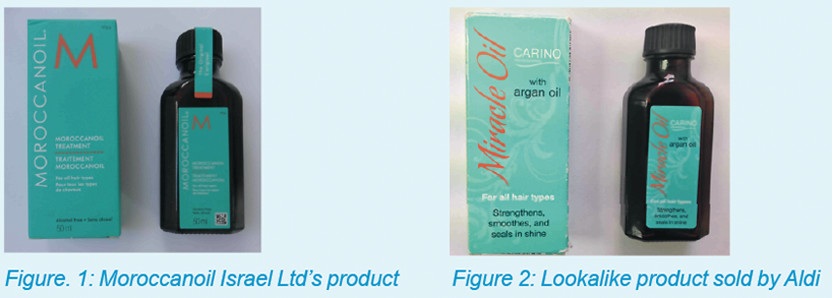Lookalike private label products
The UK Government has declined to implement private rights of action for brand owners, in its review of the Consumer Protection from Unfair Trading Regulations (CPRs).
No private enforcement rights
Unlike most, if not all, other European Union countries when they implemented the European Unfair Commercial Practices Directive, the UK decided not to give an enforcement role to 'competitors'. As things currently stand, therefore, only public consumer protection authorities (notably Trading Standards) can take enforcement action under the CPRs.
Experience shows, despite the fact that blatant 'copycat' cases may be in breach of the CPRs (which prohibit misleading commercial practices that can cause an average consumer to take a different transactional decision), that the authorities are reluctant to pursue such matters. Understandably, in the current economic climate, they are under resourced and face a difficult task in prioritising what cases to pursue. Typically, therefore, they will not engage with 'lookalike' issues, which are viewed as essentially commercial disputes between competitors with little or no risk of harm to consumers.
Passing off law does not assist
Equally, trade marks and the law of 'passing off' are inadequate to address the issue. Trade marks often do not appear on lookalike products. As to the limitations of passing off, this is perhaps most clearly demonstrated by a recent case in which the makers of Moroccanoil hair oil were unable to prevent the supermarket Aldi from selling a copycat haircare product with this very similar get-up (see images below).

Therefore, without being able to invoke the CPRs themselves, brand owners are often left with no effective remedy in the UK (unless perhaps they have comprehensive registered design protection for the get-up of their products, which unfortunately for Moroccanoil it appears they did not).
Government review
For the above reasons, The British Brands Group and other stakeholders have lobbied for many years for a change in the law, so as to permit private rights of action under the CPRs. They had hoped that, in its recent review of the issue, the UK Government's Department for Business Innovation and Skills (BIS) would recommend a legislative change.
Having now published its report, the BIS has concluded that the evidence suggests:
- "copycat packaging reduces consumers' ability to make accurate decisions. However, this does not confirm detriment;
- some consumers deliberately buy copycat products and a high proportion are happy with their purchase."
Accordingly, there appears to be no appetite on the part of the BIS for a change in the law and there is no recommendation to do so.
Missed opportunity?
Many of our clients may feel this is a missed opportunity to rectify the situation and bring the UK into line with most other EU countries.
We are in a position where, although English law does recognise the illegality of certain copycat packaging which misleads consumers to make a different purchasing decision (in the CPRs), there is effectively no way of enforcing the law in practice. This is also despite the fact that competitors are willing to pay for enforcement actions themselves, such that there would be no impact on the public purse.
Nevertheless, it seems that this issue has been kicked into the long grass and there is no prospect for reform for the foreseeable future. It is therefore more important than ever for rights holders for whom the UK is a key market, to focus on effective design protection (through the registered Community design (RCD) system) for the appearance of their products and packaging.
In short
Private rights of action under the CPRs will not be introduced in the UK.
Be aware of the limitations of passing off under English law.
Use the RCD system to protect new designs (colour, shape, etc) of get-up and product packaging.
Case details at a glance
Jurisdiction: England and Wales
Decision level: Intellectual Property Enterprise Court (IPEC)
Parties: Moroccanoil Israel Ltd v Aldi Stores Ltd
Citation: [2014] EWHC 1686 (IPEC)
Date: 29 May 2014
Full decision: http://dycip.com/moroccanoilvaldi
Useful link
Consultation on consumer protection – copycat packaging – call for evidence (13 October 2015): http://dycip.com/copycatconsultation
